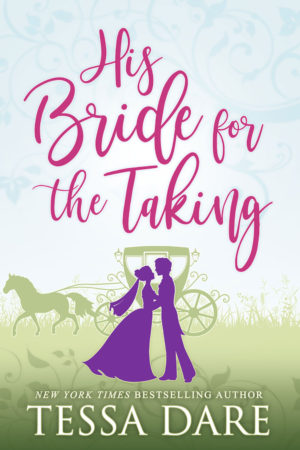|
Crashing
|
This year, I am adding a new term to my publishing vocabulary: “crash”. As in, “to crash a book.”
Perhaps you already know what this means. I confess, I didn’t. My agent called me a little over a year ago to let me know yes, Ballantine would publish the Stud Club trilogy. I said, “Great!” (Read: OMG, squeeeeeee!). She said they wanted to publish them in May/June/July 2010. I said, “Um, how is that possible?” (Read: massive internal freak-out) And she said, “Well, they will just crash the last book.” And I said, “Oh, okay. I totally know what that means.” (Read: a total lie.)
I still don’t have a hard-and-fast definition for “crash”, but I’ve gathered it means to rush a book through production. Sometimes this is unplanned, because the author for one reason or another turns in a book after deadline. In this case, however, the “crash” was planned in advance, as it was the only way to get the trilogy releasing back-to-back in the summer months. And since having a trilogy release back-to-back in the summer months is pretty awesome, I was down with this “crashing” thing, whatever it meant.
See, before this crashed book, I’ve always worked in my own little bubble between contract and deadline, then turned in the finished manuscript 9+ months before the book’s publication date. Subsequent revisions, copy edits, page proofs have felt almost…leisurely, in retrospect.
But since we knew this third book would be a crashed book, turned in just four months before publication, the process has gone something like this:
- My editor okayed a detailed proposal back when I got the contract, last year. We had some discussions about points of plot and character, and I rethought a few things before I even started writing. Almost like pre-writing revisions. (“Previsions”? Can that be a new word?)
- Cover art was made. A blurb was written. The book was given an ISBN. All before I’d started writing this particular book. Urk. No backing out now!
- As I wrote the book, I turned in parts of it to my editor at different intervals, to make sure she was okay with how the work was progressing (and probably so she could feel assured the work was progressing, period.) After I turned in the first section, she had some questions and we talked through them. When I turned in 2/3 of the book to her at the end of January, her only complaint was that the chunk I gave her cut off right before a love scene (I hadn’t written it yet!). That’s where I started to feel like everything would be just fine. 8)
- I worked like a fiend to finish. A few awesome critique friends read the draft on short notice, and I made some revisions before turning in the completed book on March 1st. I did need two extra days to get the epilogue done, but I still consider it a deadline met. 🙂
- My editor read the book right away, was happy with how it turned out–by this point, there were no surprises, hopefully–and she sent it straight on to copy edits.
- I got the copy edited manuscript back yesterday, barely 2-1/2 weeks after turning in the book. (Normally, it’s something like 2-1/2 months.) I have a week to get it back to NY. Once I send it back, I assume the page proofs will be similarly rushed, and the whole shebang will be sent to print.
I know many authors work on this kind of a “crash” schedule routinely–sometimes on even tighter margins than mine–but holy cow. There’s so little room for error. I’m so pleased that my publisher trusted me to deliver a good book on deadline, but the whole time I was writing Three Nights, I would have these horrible thoughts like, “What if I fall and break both arms, and I just physically can’t finish the book on time? What will they do?”
Fortunately, no such calamity befell me. More fortunate still, I’m blessed with an editor, agent, critique partners, friends, and family who were all so supportive and inspiring and helpful along the way. My goal, of course, wasn’t just to meet the deadline, but to write a good book on deadline. To that end, there were many false starts and do-overs and late nights spent rethinking and revising. I’m so happy with how Julian and Lily’s romance turned out, but I’ll be working up to the last possible minute to make Three Nights with a Scoundrel the best book I can. This weekend, I’m sharpening my colored pencils and immersing myself in copy edits – and after that, I think I will crash.
While I’m defining words, there any publishing terms you’re curious to see defined? Or that you’ve learned the meaning of the hard way? 😉









March 19th, 2010 at 11:05 am · Link
At my pub house, we call it fast-tracking a book. We shorten our usual production schedule to as short as 9 weeks, although it’s usually a 12-week cycle. And we only approve a book for fast-tracking if we feel confident the author can deliver. So you should feel proud of yourself that your editor felt you could deliver it on a shortened schedule.
March 19th, 2010 at 12:26 pm · Link
I’ve never heard of this term. Thanks for sharing, and very much looking forward to the summer triology. 🙂
March 22nd, 2010 at 11:02 am · Link
Congrats on getting the book done! I’m sure you and your publisher will feel the rushed schedule was well worth the summer sales for your trilogy:)
On a similar note, my two least favorite terms were “pushed out” meaning the release date had moved into the future or “dropped-in” meaning the book had been added at the last minute after the orders were taken for a given month. I always thought “pushed out” was much worse seeing as it meant I had to wait longer to read my favorite authors’ stories!
March 24th, 2010 at 8:47 am · Link
Hurrah on meeting your crunched deadlines, and thank you for this most illuminating post. But I’ve finally realized that an author’s success lies in the trust an editor has in their abilities. It’s so awesome that you have a team around you who trusts your writing and that you trust yourself (something I’m working on!). I can’t wait to read this trilogy.
March 24th, 2010 at 11:39 am · Link
Lori, thanks for the new term! I have to admit, “fast-tracking” sounds ….well, happier than “crashing”. And yes, now that I’ve been through it, I do feel very honored that they trusted me to deliver!
Gillian, it’s always so nice to hear from you! I hope you and yours are doing well.
Sarah: Oooh, yet more words I didn’t know! Gee, I’m going to hope neither of those are ever applied to my books.
Evangeline: Once the book is written, where it goes from there is all about the publisher. So as you say, I’m very grateful that they’ve chosen to bring me out with these two back-to-back trilogies. It really is an amazing opportunity.